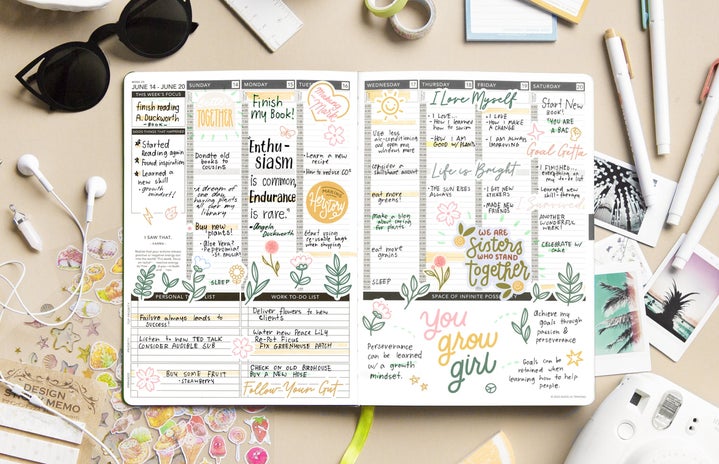Do you have an idea for the next great novel? Maybe it came to you in a dream, or perhaps it’s the story of your life! If this sounds like you, you’re in the right place. Or should I say, ‘write’ place because this is where you’ll learn how to take that idea and write it into reality. Whether you plan to go towards the traditional or indie-publishing path, the first step in writing a book is, well, to write the book. Let me tell you how I wrote a 3-book trilogy:
- Decide to write a book
-
The simple truth is that you won’t write a book unless you want to. The majority of people who have an idea for a book will actually never write it because they don’t have the commitment or dedication to do so. Sit down and have a talk with yourself. Is this something you really want? In my experience, there was nothing else I wanted except for this. It has always been my dream to become a published author. But anyone can be an author. All they need is a good idea and the drive to make that idea great. Once you know that you will see this through, no matter how long it takes, no matter how many rejections you may receive, and no matter how many plot holes you might find, then it’s time to move onto Step 2.
- Plan The Book
-
I’m going to be honest with you. I’m a pantser. This means that I just go with the flow; I let the story take me along for the ride without an outline. A plotter is an author who will write out a detailed outline, sometimes mapping out each chapter before even starting the book. I just wrote my chapter without thinking much about where the book would end. It all depends on what you are most comfortable with and how much you want to edit. I discovered that without an outline, a bunch of plot holes revealed themselves to me 10 years down the road. For example, in my YA fantasy novel, Intangible, I created a city that was protected under an energetic dome. I only just realized that I had put snow inside the city, even though the sky was outside the dome. If I had planned out every little detail before, this would probably have been avoided. However, plotting out an entire book before it is even written takes just as much time and effort. The only difference is plotting requires that effort before you write, and pantsing requires it during and after you write. I do want to clarify that as a pantser, you still write things down and plan things out a little. When I find plot holes, I simply go to my notebook and brainstorm alternate solutions. It just arises in the moment rather than before the process begins. Experiment with both ways, and see which fits your style. Then move on to Step 3.
- Write The Book
-
When you know what you’re going to write about, write it. Do not go back and edit while you are writing. Wait until the book is complete to edit and revise and rearrange. Right now, your priority is to get down a first draft. Keep in mind that it is a draft for a reason. By the time you edit it, you might have a completely different book on your hands. I know I did. Sometimes it can be difficult to find inspiration or motivation when you’re writing. Sometimes the path seems so long and you can easily get discouraged. Here are some methods I used when I faced writer’s block, imposter syndrome, or simply just exhaustion:
- Writing Sprints: sit down at your computer and write for 15 minutes without stopping.
- Clear your space: get rid of any distractions, such as your phone.
- Designated time: pick a time, whether early in the morning or late at night, to dedicate only to writing your book.
- Step away: right before I finished my book, I faced a severe case of writer’s block. It turned out I was just scared of finally completing my draft, but to combat this, I had to put my book away for a few months and not look at it. By doing this, I was able to come back with fresh eyes. It can be less than a month or more, but in the end, when you come back to your book, you’ll find that you’ve missed writing.
- Journal: if you are feeling as if no one will want to read your book or that you’re actually not a good writer, write this in a journal. Try to get to the bottom of your fears. And know that what you have to say will help someone, even just one person. I promise. I thought no one would read my book, and then I began marketing. I now have almost 5000 supporters on BookTok (a TikTok community dedicated to book content) who are interested in my book. You never know if you don’t try.
Writing a book doesn’t have to be scary. It can be fun too! Your book becomes your baby, believe me. Once you start writing, and you see it unfolding before you, you become invested in its success. Here are some ways that you can inspire and motivate yourself to see this project through:
- Create a playlist: go on Spotify and get creative! Create a playlist with songs that match the vibe of your book. You can even create individual playlists for each character in order to get to know them better.
- Create a Pinterest mood board: look for images that describe your book and save them to a Pinterest board. This can be integral in motivating you and helping you visualize what you want for this book.
- Create a BookTok: immerse yourself in the writing and reading community on TikTok, whether as a content creator or just as an observer. I have met so many amazing people on this app, some of who have later beta read or designed covers for me! It is also important in later steps to get your book out there. But that comes after writing.
Now you are well on the road to completing your first draft! I’m sorry to say that this is only the beginning, but if you were able to get through the challenge of writing the book, I am confident that you will be able to edit, market, and publish this book as well. It’s definitely going to be hard work, but once you hold your completed book in your hand, it will all be worth it. If you would like to learn how to edit, market, and publish your book, stay tuned for my next few articles! And feel free to let me know of your success stories as well :) Happy writing!


